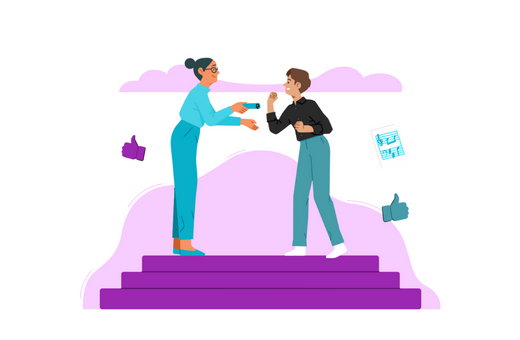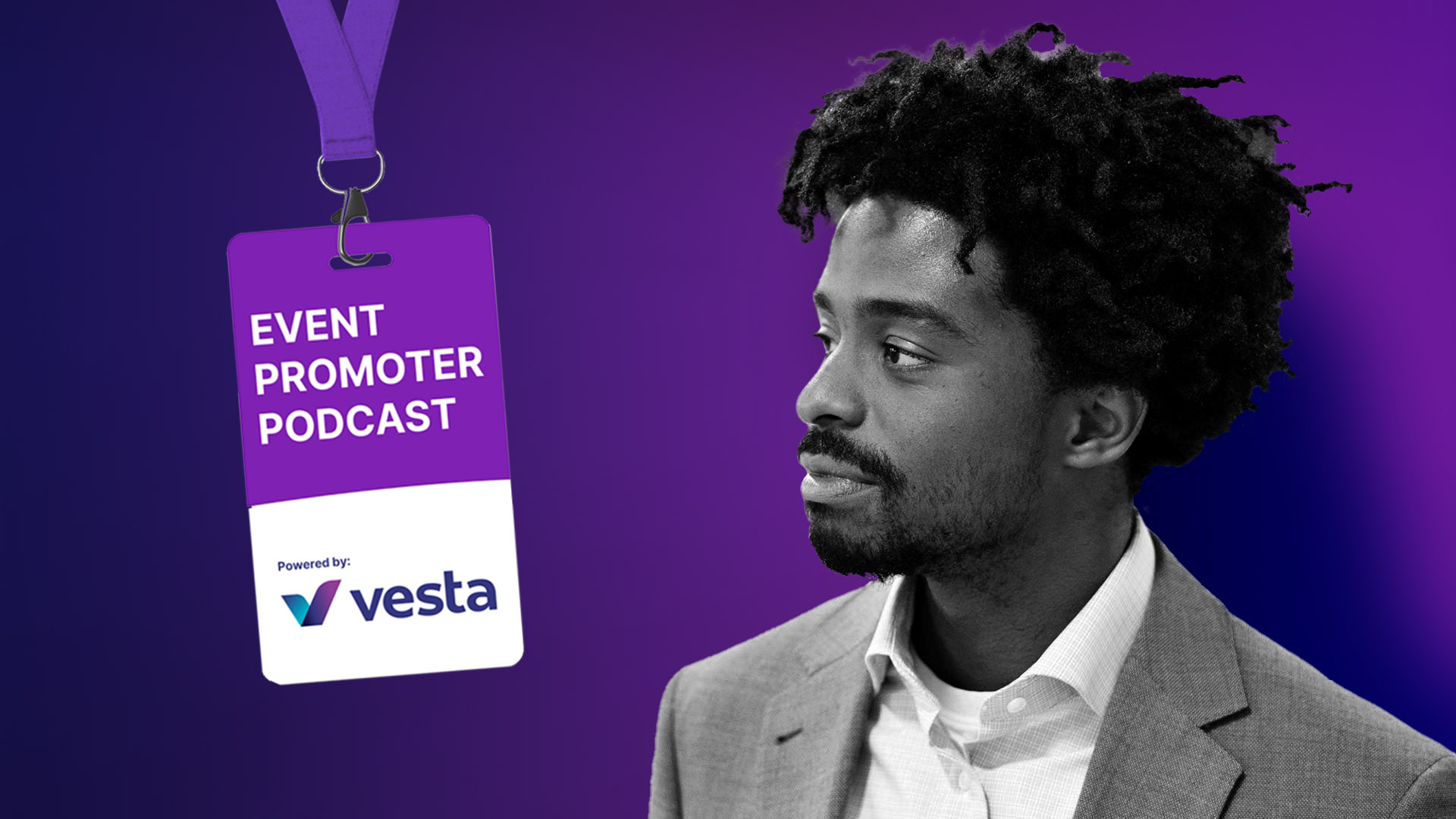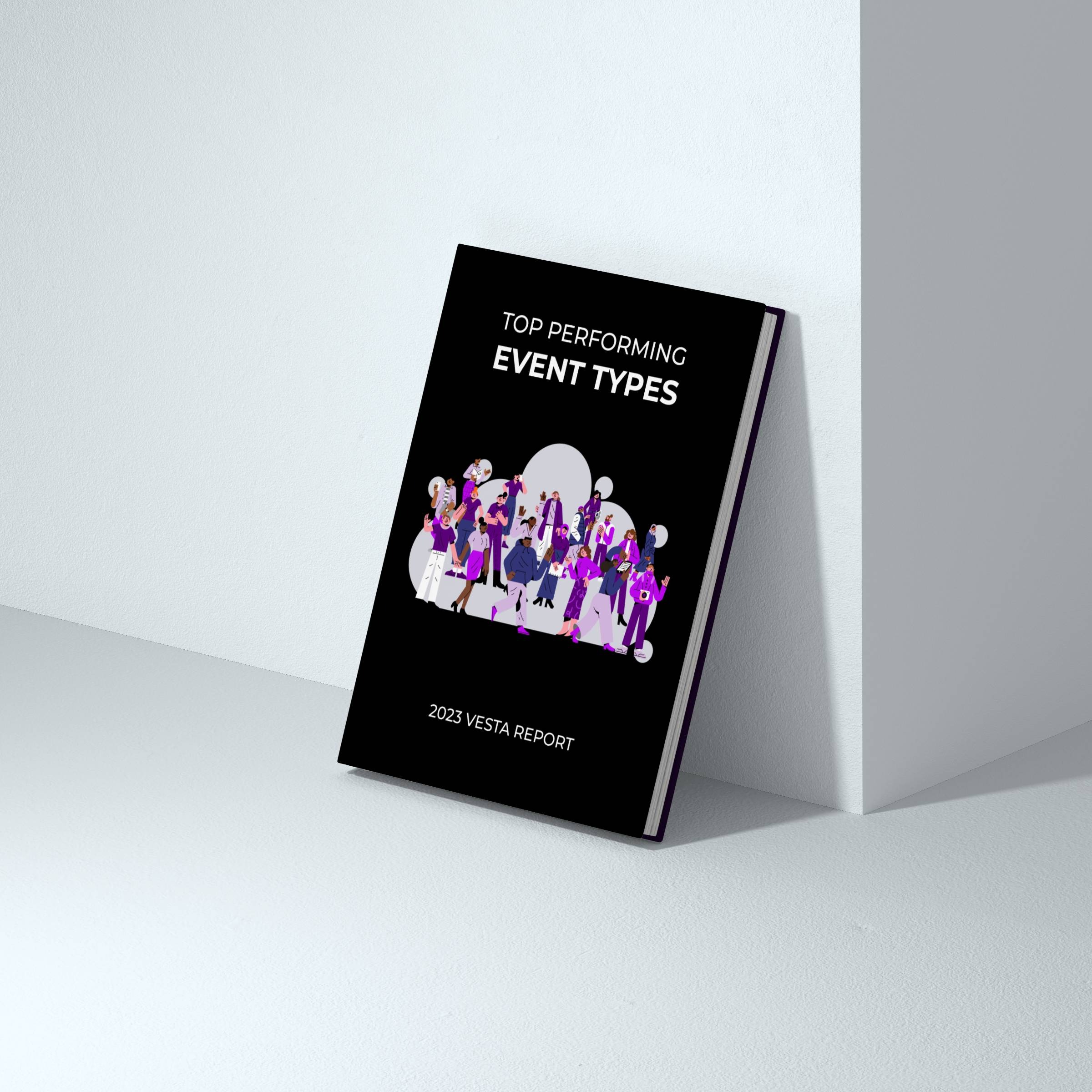The Ultimate Guide to Event Sponsorship: How to Sell Sponsorships for Your Event or Venue

Event sponsorships can be a powerful marketing tool for both event organizers and sponsors.
By aligning with the right event and creating a customized sponsorship package, sponsors can increase brand awareness, generate leads, drive sales, build relationships, and improve their reputation.
But how do you get sponsorships?
In this comprehensive guide, we’ll cover everything you need to know about how to sell sponsorships for your event or venue, including how to research potential sponsors, create a compelling proposal, negotiate a deal, and measure the success of the sponsorship.
Whether you’re new to event sponsorship or an experienced pro, you’ll find valuable tips and insights to help you attract and retain sponsors for your events.
Table of Contents
Tips For Selling Sponsorships
First, here are some overview tips for selling sponsorships for your event:
Clearly define your goals and objectives for the event. This will help you identify the types of sponsorships that would be most beneficial for your event and target audience. It will also give you an idea of how much you need to raise in order to have a successful event.
Research potential sponsors that align with your event’s values and mission. Look for companies and organizations that have a history of supporting events or causes similar to yours.
Create a sponsorship proposal that outlines the benefits of sponsorship for the sponsor, including any marketing and promotional opportunities. Be sure to include information about your event, including the target audience, location, and expected attendance.
Approach potential sponsors with a personalized pitch that highlights the benefits of sponsorship and how it aligns with their business goals.
Negotiate the sponsorship deal and be open to compromises and adjustments to meet the needs of both parties.
Follow up with sponsors after the event to report on the success of the sponsorship and how it benefited the sponsor. This can help build a positive relationship for future events.
Don’t be afraid to ask for help! Seek out advice from other event organizers or professionals in the event industry and marketing industry. The more knowledge and experience you have, the more successful you’ll be in selling sponsorships for your event.
Examples of Goals Sponsors Care About
Here are some examples of goals sponsors might be looking to achieve by sponsoring your event:
- Increasing brand awareness: Sponsors may be interested in supporting an event if it provides an opportunity to increase their brand awareness and reach a new audience.
- Generating leads: If an event has the potential to generate leads for a sponsor’s business, it could be an attractive sponsorship opportunity.
- Driving sales: Sponsors may be interested in supporting an event if it provides an opportunity to drive sales of their products or services.
- Building relationships: Sponsors may see value in supporting an event as a way to build relationships with customers or clients.
- Supporting a cause: Sponsors may be interested in supporting an event if it aligns with their company’s values or if they have a history of supporting a particular cause.
- Improving reputation: Sponsors may see value in supporting an event as a way to improve their reputation and demonstrate their commitment to a particular community or cause.
- Employee Benefit: Some sponsors may value attendance to your event for their employees as a benefit. It can be an exciting perk for their employees.
It is important to understand the value sponsors get out of sponsorships. Lets dive a bit deeper on common sponsor goals.
How does event sponsorship help a sponsor increase brand awareness?
Event sponsorship is a great way for a sponsor to increase brand awareness because it provides an opportunity for the sponsor’s brand to be seen and talked about by a large and targeted audience.
Sponsorship allows the sponsor to associate their brand with the event and all of the promotional materials and activities surrounding it. This can include things like signage, branded items, and advertisements.
Sponsorship also provides the opportunity for the sponsor to interact with attendees and showcase their products or services.
It can be particularly powerful for sponsors to reach a hyper-specific audience they really care about through your events. This might be a professional niche, a demographic niche, or a geographic niche that matters to them.
All of these elements combine to increase brand awareness and help the sponsor stand out in the minds of potential customers.
How does event sponsorship help a sponsor generate leads?
Event sponsorship can help a sponsor generate leads by providing an opportunity to showcase their products or services to a targeted audience. Sponsorship allows the sponsor to interact with attendees and collect contact information through activities like lead generation forms, email sign-ups, or product demonstrations.
Some events have attendees opt-in to emails from the sponsors when they register.
The sponsor can then follow up with these leads after the event to nurture the relationship and potentially convert them into customers.
Additionally, sponsoring an event can help the sponsor build relationships with attendees and establish themselves as a thought leader in their industry, which can lead to future business opportunities.
How does event sponsorship help a sponsor drive sales?
Taking it a step further, sometimes it might be appropriate for a sponsor to make the event a sales pitch. This can include things like product demonstrations or special offers.
Sponsorship also allows the sponsor to interact with attendees and build relationships with potential customers. This can lead to direct sales at the event or future sales as attendees think of the sponsor’s brand when making purchasing decisions.
There are many great examples where a sponsor gets to be a presenter and can pitch a special offer at the end. As an event host, just make sure that their presentation and offer are actually adding value to your attendees.
Additionally, sponsoring an event can help the sponsor build trust and credibility with attendees, which can lead to increased sales.
Why would event sponsors want to build relationships?
They provide a sponsor with the opportunity to build relationships with attendees and other stakeholders through interaction and engagement.
Sponsorship allows the sponsor to interact with attendees in a more personal way, such as through product demonstrations or meet and greets. This can help the sponsor build relationships and establish a connection with potential customers.
Many sponsors will value getting free admission for representatives from their company. This way their representatives can make personal connections at the event.
Building relationships is important for a sponsor because it helps to create a loyal customer base and can lead to repeat business.
Sponsorship can also help the sponsor build relationships with other stakeholders, such as event organizers and other sponsors, which can lead to future business opportunities.
Why would an event sponsor care about supporting a cause?
There are several reasons why an event sponsor might care about supporting a cause.
First, sponsors may see value in supporting a cause that aligns with their company’s values or mission. This can help to build brand loyalty and trust among consumers who support the same causes.
Sponsorship can also help a company demonstrate their commitment to social responsibility and showcase their positive impact on the community.
Supporting a cause can be a great way for a sponsor to differentiate themselves from competitors and stand out in the market.
Finally, sponsors may see value in supporting a cause as a way to generate positive media attention and improve their reputation.
How does event sponsorship help a sponsor improve reputation?
Event sponsorship can help a sponsor improve their reputation by providing an opportunity to associate their brand with a positive and well-respected event or cause.
Sponsorship allows the sponsor to demonstrate their commitment to a particular community or cause, which can be viewed positively by the public and media.
Sponsorship can also help a sponsor build relationships with attendees, event organizers, and other stakeholders, which can lead to positive word-of-mouth and media attention.
Additionally, sponsoring an event can help a sponsor build trust and credibility with attendees, which can improve their reputation and lead to increased business.
Researching Potential Sponsors
Here are some steps that an event organizer can take to research potential sponsors that align with their event’s values and mission:
- Define the values and mission of your event. This will help you identify the types of sponsors that would be a good fit.
- Research companies and organizations that support similar causes or events. Look for sponsors that have a history of supporting causes or events that align with your event’s values and mission. You can look at the list of sponsors for similar events in your industry or community that have happened in the past. Not only are those companies good prospective sponsors, but their competitors might also be good options to reach out to.
- Identify potential sponsors that have a presence in your event’s location or target market. This can help ensure that the sponsor will be able to reach their desired audience through the sponsorship.
- Research the reputation of potential sponsors. Look for sponsors that have a positive reputation and are well-respected in the industry or community. You don’t want to associate your event with a sponsor that has a bad reputation in your community. An exception to this might be a company that is trying to improve their reputation after a leadership change or under new ownership.
- Reach out to potential sponsors to inquire about their sponsorship interests and see if there is a fit with your event. Be curious about their goals and focus on learning as much as you can about what they want to achieve. That way you can craft a personalized pitch that will be a win for your event, a win for the sponsor, and a win for attendees.
- Consider working with a sponsorship agency or consultant to help you research and identify potential sponsors. These professionals can provide valuable insights and expertise to help you find the best sponsors for your event. It can be great to do the outreach yourself, but getting help from someone with more experience when you’re first starting out can be a great way to jump-start your knowledge.
Many successful festival or conference promoters will also do consulting to help events like theirs successfully find sponsorships.
Here are a few worth looking into:
- Art of Impact for music and art festivals
- The Sponsorship Guy for a variety of events including sports
- Traci Lipple for business and tech conferences. (She had an awesome sponsorship promotion she shared in our 117 Event Promotion Ideas list.)
What To Include In a Sponsorship Packages
While there are many ways you can format a proposal, it can be best to keep it short and simple. Make sure you get the key information in there, but leave room for conversation and personalizing the packages through conversation with the sponsor.
Below are some things that you might include in a sponsorship proposal:
- Event overview: This section should provide more detail about your event, including the location, dates, target audience, and expected attendance.
- Sponsorship opportunities: This section should outline the various sponsorship packages that you are offering and the benefits that each one includes. Be sure to include details about any marketing and promotional opportunities that are available to the sponsor.
- Marketing and promotion: This section should explain how you will promote the event and the sponsor’s involvement. Be sure to include information about any marketing materials, such as signage or advertisements, that will feature the sponsor’s branding.
- Target audience: This section should provide more detail about the target audience for your event and how the sponsorship will help the sponsor reach this audience.
- Budget: This section should outline the costs associated with the sponsorship packages that you are offering.
- Conclusion: This is a summary of the sponsorship opportunity and the benefits that it will provide to the sponsor. It should encourage the sponsor to get involved and provide information about how they can learn more or make a commitment.
- Contact information: Be sure to include your contact information and any other relevant details, such as deadlines or next steps.
Check out this free Canva Template based on real life proposals that have secured hundreds of thousands in event sponsorships
How Much To Charge for Event Sponsorships
Determining the cost of sponsorship can be a complex process, as there are many factors to consider. Here are some things to consider when setting sponsorship prices:
- The value of the sponsorship: Sponsorship prices should be based on the value that the sponsorship will provide to the sponsor. This can include things like marketing and promotional opportunities, access to a targeted audience, and the opportunity to build relationships with attendees. (Check out this article on social media post examples you might not think of that could get your sponsors more impressions and engagement with your audience.)
- The cost of fulfilling the sponsorship. Make sure you’re building in the cost of printing, video production, a booth, or whatever you’re promising the sponsor.
- The size and scope of the event: Larger, more established events may be able to charge higher sponsorship prices due to their greater visibility and reach.
- The target audience: Sponsorship prices may be higher for events that attract a desirable or high-income audience.
- The competition: It’s important to consider the sponsorship prices that other events in your industry are charging. You don’t want to price yourself out of the market, but you also don’t want to undervalue your sponsorship opportunities.
- The sponsor’s budget: Sponsorship prices should be based on the sponsor’s budget and what they are willing to pay. Be prepared to negotiate and make compromises to meet the needs of both parties.
It’s a good idea to do some market research and gather data on sponsorship prices in your industry to help inform your pricing decisions.
Prices can range from $250 per event to $1m+ for big festivals. That is quite a range.
Lots of festival promoters will use a combination of cash and trade to maximize sponsorships and partnerships too.
There are several ways to do market research on sponsorship prices:
- Research sponsorship prices for similar events in your industry: Look for events that are similar in size, location, and target audience to your event, and gather data on the sponsorship prices that they are charging.
- Research sponsorship prices for events in your location: Look for events in your city or region and gather data on the sponsorship prices that they are charging.
- Talk to other event organizers: Network with other event organizers and see if they are willing to share information about their sponsorship prices.
It’s a good idea to gather as much data as possible to help inform your pricing decisions.
The factors that will effect your pricing include:
- Supply vs demand. There are often only a limited amount of spaces available for sponsors. Offering some amount of exclusivity can help you drive up the value and price of your sponsorships.
- Attendee niche. How valuable are your attendees as a niche to these specific sponsors? Entrepreneurs and business people, for example, are generally going to be more valuable per person to an accounting firm than the general public.
- Number of attendees. What is the expected number of attendees? If this is your first time hosting the event, how many people attend similar events in your area and industry? What is the capacity of your venue?
Be sure to consider the specific characteristics of your event and the value that sponsorship will provide to the sponsor when setting your prices.
Different Types Of Sponsorships
There are several types of sponsorships, and the right one for your event will depend on your goals and objectives. Here are some common types of sponsorships:
- Cash sponsorships: This type of sponsorship involves the sponsor providing a cash donation to the event in exchange for recognition like showing their logo on signage.
- In-kind sponsorships: This type of sponsorship involves the sponsor providing goods or services to the event in exchange for recognition and benefits.
- Product sponsorships: This type of sponsorship involves the sponsor providing products to the event in exchange for recognition and benefits.
- Event sponsorships: This type of sponsorship involves the sponsor providing support for a specific event or series of events in exchange for recognition and benefits.
- Cause sponsorships: This type of sponsorship involves the sponsor supporting a specific cause or charity in exchange for recognition and benefits. Sometimes they might match donations towards a highlighted cause during the event.
- Named sponsorships: This type of sponsorship involves the sponsor being named as the official sponsor of the event or having their name included in the event title.
- Brand activations: This type of sponsorship involves the sponsor activating their brand at the event through interactive experiences or other promotional activities. This can help the sponsor engage with attendees and build brand awareness. It also allows you to create memorable experiences for your attendees.
It’s important to consider the goals and objectives of your event and the value that different types of sponsorships will provide to the sponsor when deciding which type of sponsorship is right for you.
How To Approach Sponsors
Here are some tips for approaching potential sponsors for your event:
- Personalize your approach. Tailor your pitch to the specific sponsor and explain how their involvement in your event aligns with their business goals and values.
- Be professional and organized. Make sure your proposal is well-written and easy to understand, and be prepared to answer any questions the sponsor may have.
- Follow up with potential sponsors after your initial pitch. If you don’t hear back right away, don’t be afraid to follow up and remind them of the sponsorship opportunity.
- Consider working with a sponsorship agency or consultant. These professionals can help you research potential sponsors and provide valuable guidance on how to approach them.
Event Sponsor Outreach Email Template
Here is an outreach email template that event organizers can use to reach out to potential sponsors:
Subject: Sponsorship Opportunity for [Event Name]
Dear [Sponsor],
I am writing to introduce you to an exciting sponsorship opportunity for our upcoming event, [Event Name].
[Event Name] is a [event type] event that will take place on [event date] at [event location]. We are expecting to attract a targeted audience of [number] [event target audience].
We believe that [Event Name] provides a unique opportunity for your company to [benefit of sponsorship]. As a sponsor, you will have the opportunity to [list of benefits].
We have put together a sponsorship package that we believe offers great value to our sponsors. The package includes [list of benefits], as well as [additional benefits].
I would love the opportunity to discuss this sponsorship opportunity further with you. Please let me know if you have any questions or if you would like to schedule a call to discuss in more detail.
Thank you for considering this opportunity. I look forward to the possibility of partnering with your company for [Event Name].
Best,
[Your Name]
Negotiating And Selling Event Sponsorships
Here are some tips for negotiating a sponsorship deal and selling the sponsor on the opportunity:
- Start with a strong value proposition: Explain the value that sponsorship will provide to the sponsor, including any marketing and promotional opportunities and how it aligns with their business goals.
- Be prepared to negotiate: Be open to compromises and adjustments to meet the needs of both parties. Be prepared to answer questions and address any concerns the sponsor may have.
- Make a case for the sponsorship: Use data and examples to demonstrate the value of sponsorship and how it will benefit the sponsor. This can include things like the size and demographics of your audience, the reach of your event, and any unique features or opportunities that the sponsorship will provide.
- Be flexible: Be willing to make adjustments to the sponsorship package to meet the needs of the sponsor. This can include things like adding or removing benefits, or changing the duration of the sponsorship.
- Be professional and respectful: It may go without saying, but remember to be respectful and professional during the negotiation process. Try to find a mutually beneficial solution that meets the needs of both parties.
- Follow up after the event: After the event, be sure to follow up with the sponsor to report on the success of the sponsorship and how it benefited them. This can help build a positive relationship for future events.
Measuring Results for Sponsors
There are several ways to measure the success of a sponsorship, depending on the goals and objectives of the sponsorship. Here are some potential metrics to consider:
- Brand awareness: Track the reach and visibility of the sponsor’s brand during and after the event. This can include metrics like social media engagement, website traffic, and media coverage.
- Lead generation: Track the number of leads generated through the sponsorship, including contact information collected through lead generation forms or email sign-ups.
- Sales: Track the number of sales that can be directly attributed to the sponsorship, either through sales at the event or through follow-up after the event.
- Attendee satisfaction: Measure the satisfaction of attendees with the sponsorship and their perception of the sponsor’s brand. This can be done through surveys or focus groups.
- Return on investment (ROI): Calculate the return on investment for the sponsorship by comparing the costs of the sponsorship to the benefits received.
It’s important to identify the specific goals and objectives of the sponsorship and choose metrics that will help you measure the success of the sponsorship in relation to these goals.
You may want to consider using a combination of different metrics to get a comprehensive view of the sponsorship’s success.
If a result isn’t as good as you were hoping, try to explain ideas on how you could improve this result for future events.
Sponsor Results Email Template
Here is an email template that an event organizer can send to a sponsor after an event to report on the results:
Subject: [Event Name] Sponsorship Results
Hey [Sponsor Representative Name],
I'm following up with you to share the results of our recent event, [Event Name], and to thank you for your sponsorship.
We are pleased to report that the event was a great success, attracting [number] attendees and generating [number] leads. We received very positive feedback from attendees, and we believe that the event was a valuable opportunity for your company to [benefit of sponsorship].
We are grateful for your support and look forward to the possibility of partnering with you again in the future. Please don't hesitate to reach out if you have any questions or if there is anything else we can do to support your business.
Thank you again for your partnership.
Best,
[Your Name]
Conclusion
Event sponsorship can be a valuable marketing tool for both event organizers and sponsors. By aligning with the right event and creating a customized sponsorship package, sponsors can increase brand awareness, generate leads, drive sales, build relationships, and improve their reputation.
To maximize the value of a sponsorship for both parties, it’s important to clearly define your goals and objectives, research potential sponsors, create a compelling proposal, be prepared to negotiate, get everything in writing, and follow up after the event.
If you’re an event organizer looking to secure sponsorships for your event, we hope that these tips have been helpful. For more resources and insights on event sponsorship, be sure to check out other articles on the Event Vesta blog. And don’t hesitate to reach out to us with any questions or to share your own insights. We love hearing from you!
Streamline Your Event Promotion With Event Vesta's Promotion Services
Join the 30,000+ events using Vesta

Author: Craig Heron
Craig is the Director of Marketing at Event Vesta. He is also Director of the event organization Scale Omaha that cultivates a startup community in Omaha, Nebraska. Previously he was VP of Marketing at Beeso Studio, President of the Board of Directors at Winker Gallery of Fine Art, and spent nearly a decade in event technology in Austin, Texas and Pittsburgh, PA.




